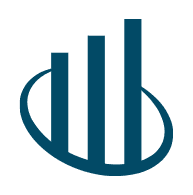Top Remote IT Jobs Philippines: Best Companies and Opportunities in 2025



Top Remote IT Jobs Philippines: Best Companies and Opportunities in 2025
Wondering about remote IT jobs Philippines? This article covers the best companies hiring in 2025 and the most popular job roles. Learn about top employers like Google and Accenture, and discover key positions such as Software Engineers and Data Scientists.
Key Takeaways
-
Remote IT jobs in the Philippines have surged by 60% since 2023, thanks to the pandemic and changing work preferences.
-
Top companies hiring for remote IT roles include Google, Accenture, and Globalbrainforce, offering great benefits and a focus on employee well-being.
-
Key remote IT positions like Software Engineers, Data Scientists, and Full Stack Developers are in high demand, with a promising future driven by e-commerce and fintech.
The Rise of Remote IT Jobs in the Philippines

The remote work trend in the Philippines has seen an incredible surge over the past few years. In 2023 alone, there was a remarkable 60% increase in the uptake of remote jobs, highlighting the shift in the workforce’s preferences for more flexible and convenient work arrangements. This surge is not just a fleeting trend but a significant transformation in how work is perceived and executed.
The COVID-19 pandemic played a pivotal role in accelerating the adoption of remote work. As businesses scrambled to adapt to the new normal, many shifted to virtual work arrangements to ensure continuity. This shift proved beneficial, with 64% of remote workers in the Philippines engaged in full-time remote positions by 2023. The pandemic might have been the catalyst, but the benefits of remote work have ensured its continued popularity.
Technological advancements and changing work preferences further fuel this trend. With robust digital infrastructure and a tech-savvy workforce, the Philippines is well-positioned to support the growing demand for remote IT jobs. As we move forward, the landscape of remote work in the Philippines is set to expand, offering more opportunities for IT professionals to thrive in a flexible and dynamic environment.
Top Companies Hiring for Remote IT Positions

Several top-tier tech companies in the Philippines are actively hiring for remote IT positions. These companies, known for their innovative work environments and comprehensive benefits packages, include Google, Accenture, and Globalbrainforce Philippines. They not only offer competitive salaries and career growth opportunities but also emphasize cultural fit, diversity, and mental health support to ensure a fulfilling work experience.
Additionally, these companies adhere to strict compliance standards, such as ISO certifications, data security protocols, and regulatory frameworks, ensuring trustworthy and reliable operations. Their platforms attract a large number of users, with high user engagement and significant user counts, demonstrating their popularity, industry influence, and broad market reach.
Google Philippines
Google Philippines has been a game-changer in the local tech scene, particularly in Metro Manila and Quezon City. Known for advancing local AI initiatives through strategic partnerships, Google is setting new standards in the industry. Their presence in the Philippines is not just limited to Manila; they also have significant operations in Cebu, collaborating globally with teams in Australia and Canada. This global collaboration opens up ample opportunities for Filipino IT professionals to work on cutting-edge projects and gain international exposure.
Google’s commitment to innovation and excellence makes it a sought-after employer. They offer remote work options that cater to the needs of modern tech professionals, providing flexibility and a supportive work culture. For those looking to make a mark in the tech industry, Google Philippines presents an ideal platform to grow and excel.
Accenture
Accenture stands out as a global leader with a workforce of approximately 774,000 employees. Their emphasis on digital innovation has led to revenue growth rates that are 60% higher than conventional benchmarks, showcasing the difference in their approach. This focus on innovation is reflected in their diverse range of job roles, from software development to management and consulting, which sign a commitment to excellence.
Accenture’s workplace culture promotes diversity, mental health support, and continuous learning, ensuring employees thrive professionally and personally. They offer remote work opportunities that allow IT professionals to collaborate with clients and colleagues worldwide, pushing the boundaries of what’s possible in the tech industry.
If you’re looking to join a company that values innovation and employee well-being, Accenture is a top choice.
Globalbrainforce Philippines
Globalbrainforce Philippines has carved a niche in connecting Filipino software developers with international clients. They offer long-term remote and hybrid work opportunities with flexible schedules, ensuring employees can maintain a healthy work-life balance each week. Their competitive salaries and comprehensive support for remote work, including IT equipment and HR services, make them a preferred employer in the php industry.
Professional growth is a key focus at Globalbrainforce, with ongoing learning, training, and international exposure being integral to their work culture. Their horizontal organization structure fosters collaboration and open communication, allowing employees to thrive in a supportive and dynamic environment. The implementation of these practices ensures continuous development.
For those specializing in software development and IT roles, Globalbrainforce offers a focused and rewarding career path.
Popular Remote IT Roles in the Philippines

The demand for remote IT roles in the Philippines is booming, with key positions including Software Engineers, Data Scientists, and Full Stack Developers. These roles are critical in driving technological advancements and supporting the growing needs of businesses and customers.
Each position comes with its unique set of responsibilities and skill requirements, making them exciting career options for aspiring IT professionals.
Software Engineer
Software Engineers play a vital role in designing, developing, and maintaining software applications. This involves writing code, debugging, and testing to ensure the software runs smoothly and meets user needs. Essential skills for this role include proficiency in programming languages like Java, Python, or JavaScript, along with strong problem-solving and analytical abilities.
With the increasing demand for software development, opportunities for growth in this field are abundant. Upgrading Software Engineers can advance to senior roles or specialize in emerging technologies, making it a dynamic and rewarding career path. Familiarity with DevOps practices and agile methodologies further enhances their ability to deliver high-quality software solutions.
Data Scientist
Data Scientists are instrumental in analyzing data to derive meaningful insights and support decision-making processes. In the Philippines, Data Scientists often use programming languages such as Python and R to perform data analysis and create predictive models. Their work involves a blend of software development and data science, making them crucial to the digital transformation of businesses.
Proficiency in these programming languages, along with strong analytical skills, is essential for success in this role. As the demand for data-driven decision-making grows, Data Scientists are becoming increasingly valuable in various industries, from finance to healthcare, offering a dynamic and impactful career path.
Full Stack Developer
Full Stack Developers are the jack-of-all-trades in the tech world, handling both front-end and back-end development to create complete web applications. They are expected to have knowledge of a wide range of technologies, including JavaScript frameworks like React or Angular for front-end development and Node.js for back-end development.
Their role encompasses everything from server management to user interface design, requiring a deep understanding of both sides of the development process and functionality. This versatility makes Full Stack Developers highly sought after, offering numerous job opportunities and career advancement in the tech industry.
Benefits of Working Remotely in IT

Working remotely in the IT sector comes with a plethora of benefits. One of the most significant advantages is the improved work-life balance that flexible schedules offer. Employees can manage their professional and personal lives more effectively, leading to reduced stress and higher job satisfaction. The ability to work from the comfort of one’s home eliminates the daily commute, which not only saves time but also reduces stress levels, contributing to overall wellbeing.
Remote work also boosts productivity, as employees face fewer distractions and can create a comfortable working environment tailored to their needs. Additionally, the reduced exposure to workplace illnesses means remote workers tend to take less sick leave, maintaining consistent productivity.
Employers are increasingly recognizing these benefits and implementing policies that emphasize mental health and flexibility, further enhancing the remote work experience and its perks.
Workplace Culture and Employee Satisfaction in Remote IT
In the fast-evolving tech industry of the Philippines, workplace culture and employee satisfaction have become top priorities, especially for remote IT jobs. Companies like Ayala Land and Google Philippines are setting the standard by introducing innovative programs that support work-life balance, continuous learning, and sustainability. Flexible schedules are now a hallmark of remote IT roles, empowering professionals to work from anywhere—be it Metro Manila, Quezon City, or other regions across the country.
A recent Statista survey revealed that 80% of employees in the Philippines prefer remote work arrangements, underscoring the importance of adapting to this new reality. By fostering a positive workplace culture, companies not only boost employee retention and productivity but also attract top tech talent, including software engineers, data scientists, and stack developers. This focus on employee well-being and satisfaction is helping the Philippine tech industry thrive, making it a magnet for professionals seeking meaningful and flexible careers.
Essential Skills for Remote IT Professionals
Remote IT professionals need a blend of technical and soft skills to thrive in a distributed work environment. Programming skills, particularly in languages like Python and JavaScript, are crucial for software development and task automation. Understanding systems and networks is also essential, as it enables professionals to administer operating systems and troubleshoot technical issues effectively.
Equally important are soft skills such as communication and organization, which help remote workers collaborate effectively with their teams at speed. Keeping up with industry trends is vital, as it equips professionals with insights into in-demand skills and competencies.
DevOps expertise, which combines development and operations skills, is particularly valuable for enhancing collaboration between IT and software teams. By mastering these skills, remote IT professionals can excel in their roles and contribute significantly to their organizations.
Remote Work Tools and Technologies
The surge in remote IT jobs in the Philippines has driven companies to adopt a suite of advanced tools and technologies to keep teams connected and productive. Platforms like Zoom, Slack, and Asana have become essential for seamless communication, collaboration, and project management among remote employees. Cloud-based solutions such as Google Cloud and Microsoft Azure are increasingly popular, enabling secure data storage, real-time analysis, and efficient management of digital resources.
To address the growing demand for data security, companies are also investing in robust cybersecurity measures, ensuring that sensitive information remains protected as teams collaborate with clients and customers from around the globe—including Australia, Canada, and India. By leveraging these technologies, remote IT professionals in the Philippines can deliver high-quality services, manage complex projects, and maintain strong relationships with clients, all while enjoying the flexibility and agility that remote work offers.
How to Land a Remote IT Job in the Philippines
Landing a remote IT job in the Philippines requires a strategic approach. Start by tailoring your resume to highlight relevant skills for the job you’re applying for, making sure to showcase your technical expertise and any remote work experience. Building a strong online presence, especially on platforms like LinkedIn, can also attract the attention of recruiters and potential employers.
Preparation is key when it comes to interviews. Companies assess not only your technical skills but also how well you fit within their established culture, serving as a benchmark for potential candidates. Having strong character references can further enhance your profile, providing proof of how you connect with your work ethic and reliability as a person.
Remember, job hunting requires patience and persistence, so stay focused and keep refining your approach until you achieve the right opportunity.
Tech Education and Training for Remote IT Careers
As the demand for skilled IT professionals continues to rise in the Philippines, tech education and training have become crucial for career advancement in remote roles. Companies and educational institutions are responding by offering specialized programs in software development, data science, and cybersecurity, equipping employees with the expertise needed to excel in the digital age. Training often focuses on programming languages like PHP, Java, and Python, as well as emerging fields such as artificial intelligence, machine learning, and cloud computing.
Online courses and certifications from platforms like Google, Microsoft, and Coursera are gaining traction among remote IT professionals, providing flexible learning options that fit around work schedules. By investing in continuous education and upskilling, companies not only enhance their competitiveness but also contribute to the overall growth and innovation of the Philippine tech industry. This commitment to development ensures that professionals remain at the forefront of technology and are prepared to meet the evolving needs of the industry.
Salary and Benefits in Remote IT Jobs
Remote IT jobs in the Philippines are known for offering competitive salaries and a wide range of benefits, making them highly attractive to professionals in the tech industry. According to Glassdoor, the average salary for a software engineer in the Philippines is around PHP 600,000 per year, with many companies providing additional perks such as health insurance, retirement plans, and paid time off. Leading employers like Accenture, Google, and Microsoft go a step further by offering flexible schedules, remote work options, and opportunities for professional development.
To promote work-life balance and overall well-being, some companies also provide unique benefits like gym memberships, mental health support, and employee assistance programs. These comprehensive benefits packages help companies attract and retain top talent, drive innovation, and achieve their business goals. For IT professionals seeking rewarding opportunities, the combination of competitive pay and valuable perks makes remote jobs in the Philippines a compelling choice.
Company Culture and Values in Leading IT Firms
Top IT companies in the Philippines, including Ayala Land, Google, and Accenture, are redefining success by placing a strong emphasis on company culture and core values. These organizations foster a dynamic environment that encourages innovation, collaboration, and continuous learning, enabling employees to thrive and contribute to the company’s achievements. Diversity and inclusion are at the heart of their workplace culture, ensuring that every employee feels valued and empowered to make a difference.
By prioritizing social responsibility and sustainable practices, these companies build trust with their employees, customers, and the wider community. Whether working remotely or in-office, employees benefit from a supportive and inclusive setting that nurtures talent and drives business growth. This commitment to creating a positive workplace culture not only sets these companies apart in the Philippine tech industry but also helps them attract and retain the best professionals, ensuring long-term success and industry leadership.
Tech Hubs in the Philippines Supporting Remote Work

The Philippines has emerged as a global hotspot for remote work, ranking as the seventh fastest-growing remote work hub globally. Metro Manila, the leading tech hub, offers extensive resources and infrastructure to support remote IT jobs. The government has also implemented policies to foster the growth of tech hubs, making it easier for foreign companies to operate and invest in the region.
Cebu is another emerging tech hub, known for its growing talent pool and infrastructure that supports remote work. Significant investments in digital infrastructure have further enhanced the Philippines’ appeal as a destination for remote IT positions. Major business districts now host a large number of IT professionals, strengthening the country’s capabilities in remote work.
Future Trends in Remote IT Employment
The future of remote IT employment in the Philippines looks promising, driven by the rising demands of e-commerce and fintech. As businesses increasingly rely on digital solutions, the demand for skilled IT professionals continues to grow. AI-driven tools are set to enhance productivity by automating routine tasks, leading to smarter work processes.
Specialized skills, particularly in areas like cybersecurity and automation, will be in high demand as companies focus on hiring experts. The rise of digital nomadism, supported by global hiring practices and digital nomad visas, is another trend to watch in technology.
Additionally, the potential for virtual and metaverse workspaces could transform how team members collaborate online, creating new and exciting possibilities for remote IT professionals that matter under a contract.
Summary
In summary, the rise of remote IT jobs in the Philippines presents a wealth of opportunities for tech professionals. Top companies like Google, Accenture, and Globalbrainforce are leading the way, offering innovative work environments and comprehensive benefits. Popular remote IT roles such as Software Engineers, Data Scientists, and Full Stack Developers are in high demand, providing exciting career paths.
The benefits of remote work, including flexible schedules and improved work-life balance, make it an attractive option for many. By honing essential skills and following strategic job-hunting tips, you can land a rewarding remote IT job in the Philippines. As the industry continues to evolve, staying updated on future trends will ensure you remain competitive and ready to seize new opportunities.
Frequently Asked Questions
What are the top companies hiring for remote IT positions in the Philippines?
If you're looking for remote IT jobs in the Philippines, you should definitely check out Google, Accenture, and Globalbrainforce. They're on the hunt for talent right now!
What are the most popular remote IT roles in the Philippines?
If you're eyeing remote IT work in the Philippines, Software Engineers, Data Scientists, and Full Stack Developers are where the action's at! They're really in demand right now.
What benefits do remote IT jobs offer?
Remote IT jobs can really boost your work-life balance with flexible schedules, less stress, and even a productivity kick. It’s a win-win for your personal and professional life!
What skills are essential for remote IT professionals?
To thrive as a remote IT pro, you'll want to master programming, have a solid grasp of systems and networks, and be great at data analysis. Don’t forget to sharpen your DevOps skills and communication abilities too!
How can I land a remote IT job in the Philippines?
To land a remote IT job in the Philippines, focus on tailoring your resume and building a strong online presence. Don't forget to prepare well for interviews and gather solid character references.

